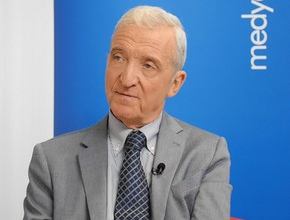What are the most frequent misconceptions about hypertension?
Franz H. Messerli: I think the most common misconception on hypertension is that it is a very common disease, as we know, so practicing physicians see a lot of hypertension, and they all think that they know hypertension, that they know how to treat hypertension. You can only imagine how many actually mismanaged patients I do see who are referred to me. That is very, very common. Simple hypertension is simple to treat, no question about that. But as soon as it gets to 3 or more drugs, it is not just a question of adding one after the other. You really have to think what is the best treatment for this individual patient. A lot of physicians do not do that – they do not have the time to do that, they do not even have the knowledge to do so. They just pile one drug on the other, and therefore often many of these patients are not well managed. That is one common misconception.
Another common misconception is that basically all antihypertensive drugs are created equal – it makes no difference which one you give. Of course every doctor has his or her favorite, that’s a given. We are influenced by a lot of factors, among them pharmaceutical industry, so if there is a nice representative, with a good smile, he or she may influence the doctor to prescribe a drug. But it does also make a difference. Not all of them are created equal. It depends again on the individual patient – what you should give, and what you should not give. That is another important point. For instance – I will be just a bit specific – hydrochlorothiazide is one of the most commonly used drugs in the US and in Europe. If you ask any physician what are the data that hydrochlorothiazide reduces heart attack, stroke, or death, most physicians will say, “Well, there must be some, I cannot recall it right now.” But there are none. Actually, there are none. We have no data that hydrochlorothiazide, the most commonly used antihypertensive drug, reduces heart attack, stroke, or death. It therefore should not be used as a first-line agent. It is not a good idea. And so on.
There are many other misconceptions that unfortunately [...] translate into bad treatment. That is one of the problems. You have to consider that once a patient is on antihypertensive therapy and blood pressure is normal, then the physician is happy and the patient is happy. Yet, when you, for instance, give a beta-blocker – and that is the third misconception I can mention – you give a beta-blocker, blood pressure is down, the patient is happy, the physician is happy, yet you have done nothing to prevent heart attack or stroke. We know that despite the fact that blood pressure is lowered by beta-blockers, they do not reduce the risk of heart attack and stroke. So all you do is create side effects but no effects. Not a very good way of treating hypertension.
 English
English
 Español
Español
 українська
українська




